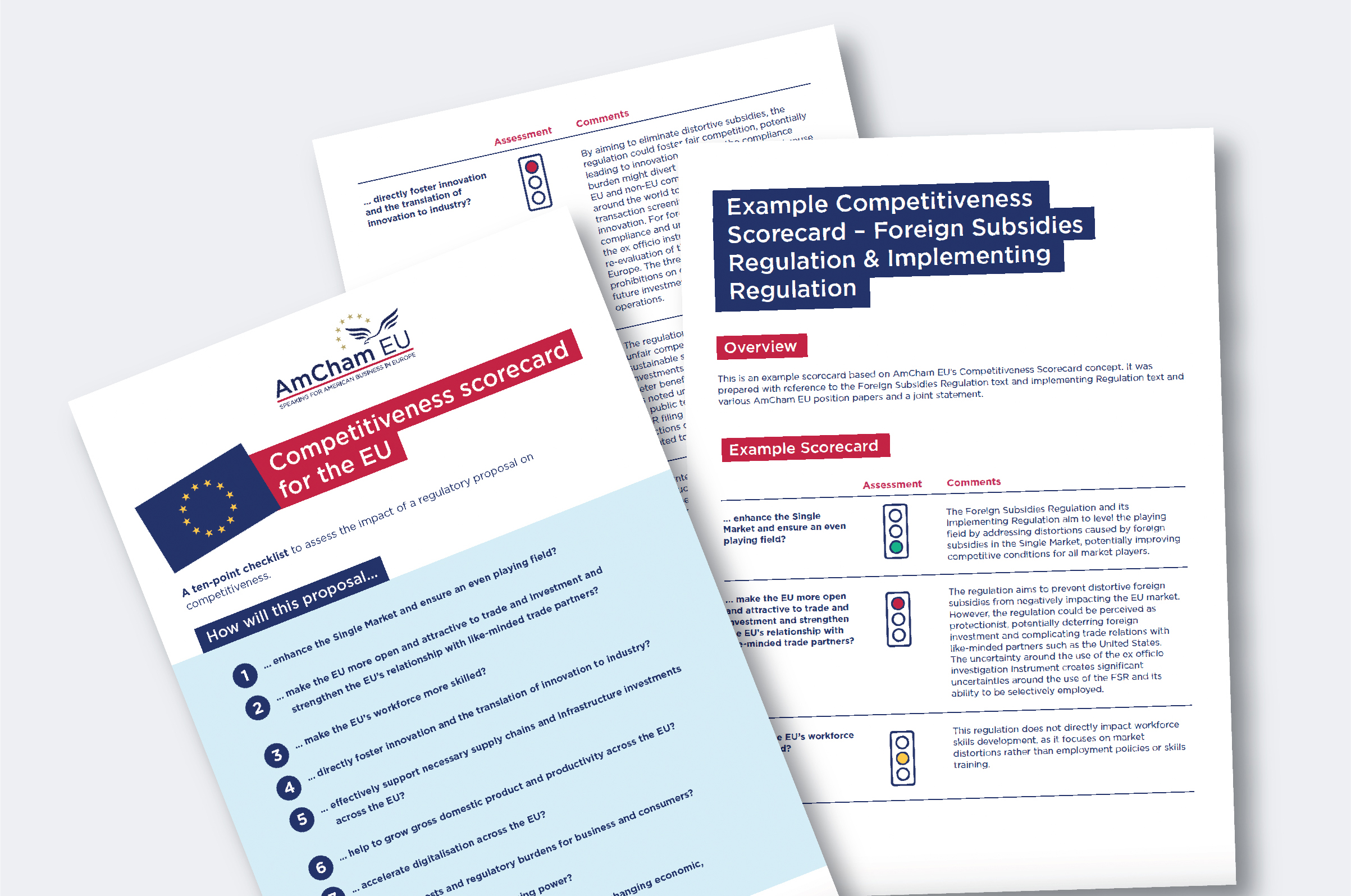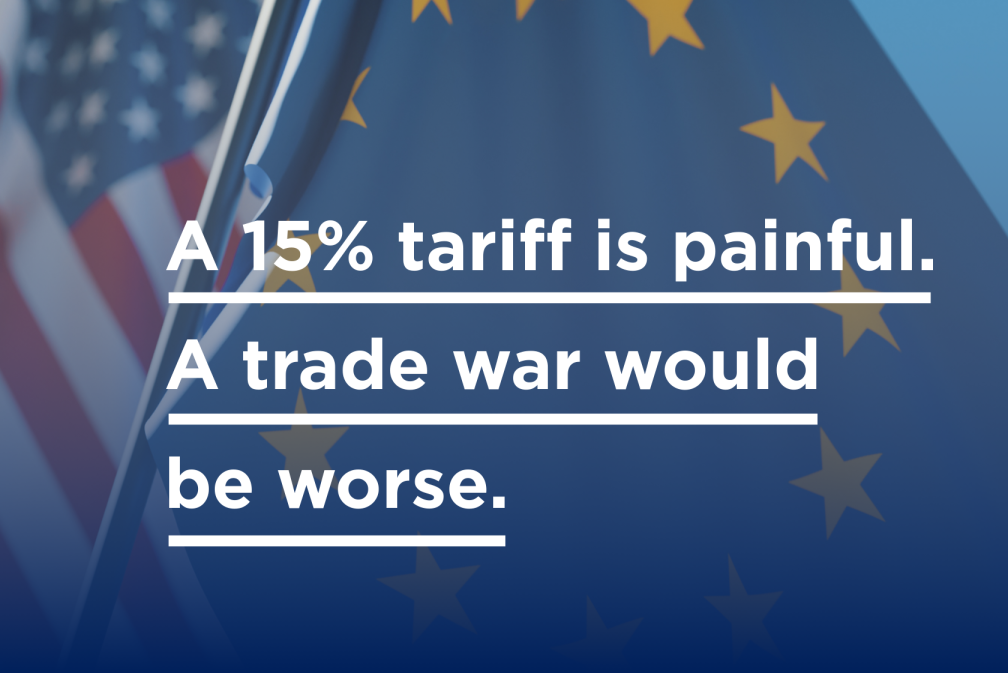These conversations are important because the attractiveness of Europe is under threat. A heavy regulatory agenda, protectionist trends and sluggish growth have created a difficult environment for business in a context of global uncertainty. But, as AmCham EU’s Agenda for Action highlights, the EU can take decisive action to reset the agenda and strengthen its competitiveness in the global economy. Decisive action includes addressing how EU policy measures and proposed regulations are made, as well as the substance of those proposals.
Even though it integrates competitiveness checks, the European Commission’s current impact assessment process could become more transparent and offer more balanced evaluations of the effect of proposed legislation on the investment climate and European competitiveness overall. The opportunity is ripe to make the European policymaking process more open, take industry data better into account, and better recognise how policymaking directly impacts European competitiveness.
One way to address these shortcomings is by introducing a focused policy evaluation tool to stimulate broader debate among co-legislators and help the Commission to better consider industry impacts. The Competitiveness Scorecard would feature a simple yet effective ten-point checklist to evaluate how new or revised regulations would:
- Enhance the Single Market and fair competition.
- Attract trade and investment while strengthening international partnerships.
- Develop skills within the EU workforce.
- Promote innovation and its industrial application.
- Support essential supply chains and infrastructure investments.
- Contribute to gross domestic product and productivity growth.
- Accelerate digital transformation across the EU.
- Reduce costs and regulatory burdens for businesses and consumers.
- Improve consumer purchasing power.
- Strengthen the EU’s competitive resilience in a rapidly changing global context.
The Competitiveness Scorecard is not just a tool – it is a conversation starter about actionable ways to enhance Europe’s competitiveness through better policy and legislative procedures. It would encourage greater public, stakeholder and cross-institutional dialogue and transparency during key legislative stages, using evidence from business analyses and other relevant stakeholders.
The Scorecard process could be convened by the EU Presidency via the Working Party on Competitiveness and Growth and could be executed by existing bodies who have relevant expertise to do the necessary analysis. The Scorecard could also be added to the Better Regulation Toolbox or a revision to the Interinstitutional Agreement on Better Law-Making.
Like other major policy and political priorities such as sustainable development, the Commission would benefit from specific evaluation and transparent discussion about competitiveness for each legislative and policy initiative that appropriately balances relevant data from industry, academia and civil society. Just as the EU has committed to a whole-of-government approach towards the United Nation’s 2030 Agenda for Sustainable Development, it needs to take a whole-of-government approach to competitiveness, using innovative policy tools and metrics to deliver a more competitive EU.
The Competitiveness Scorecard represents a forward-thinking approach to improving the Commission’s impact assessment process. By enhancing transparency, incorporating broad stakeholder insights and directly addressing key competitiveness factors, the Scorecard is a concrete way to significantly improve the quality and effectiveness of EU regulatory proposals, strengthen the Single Market and enhance the attractiveness of Europe for investment.




